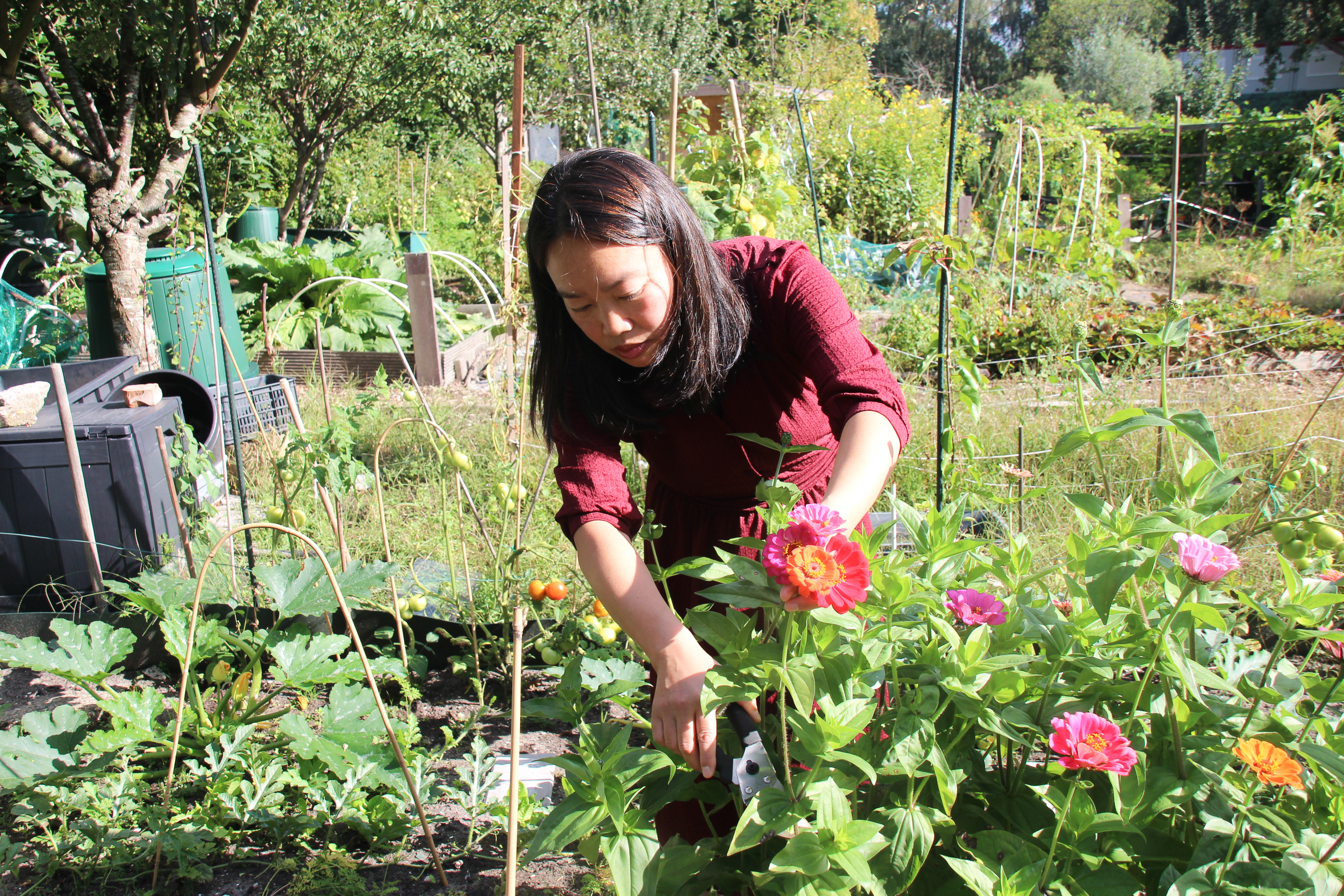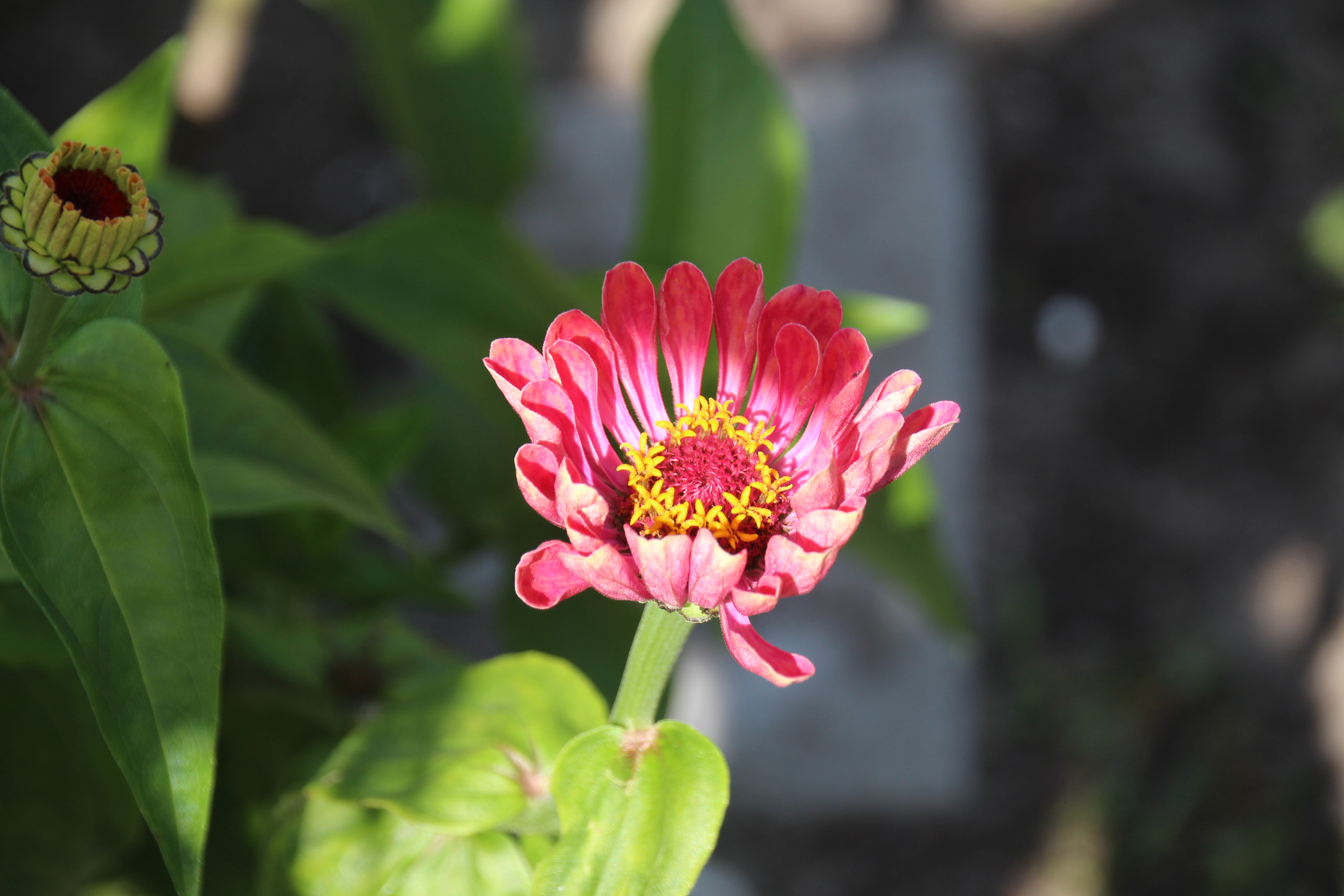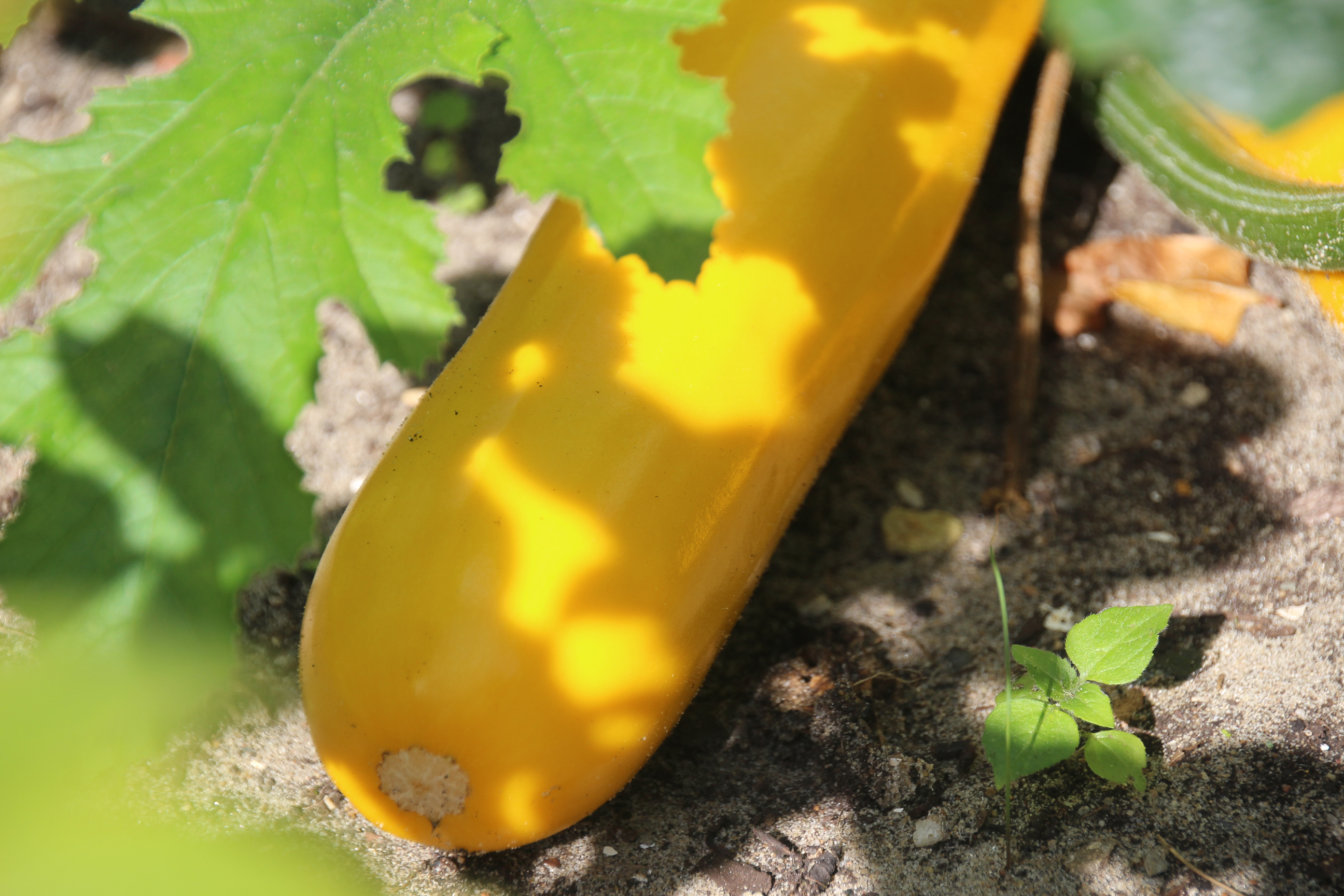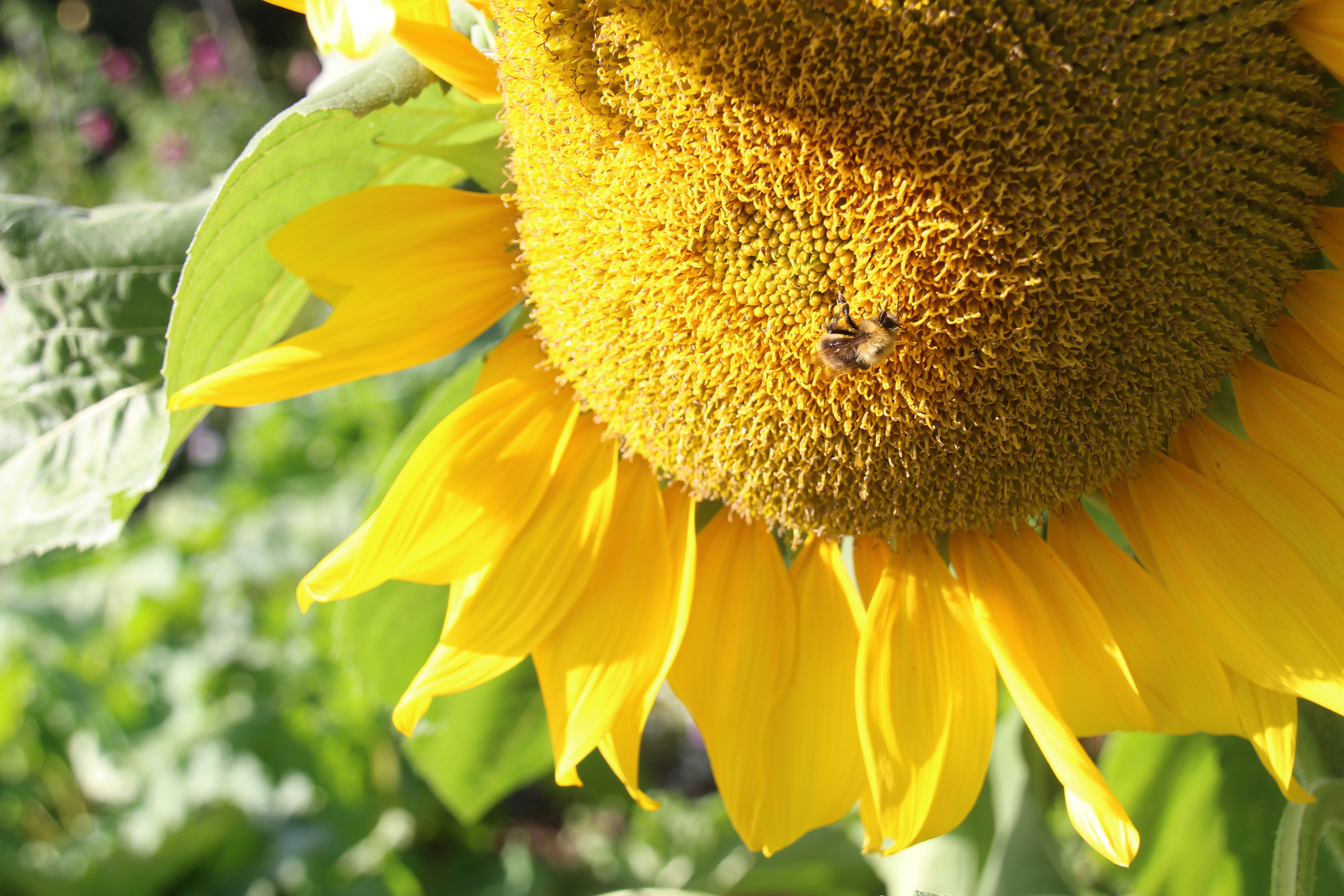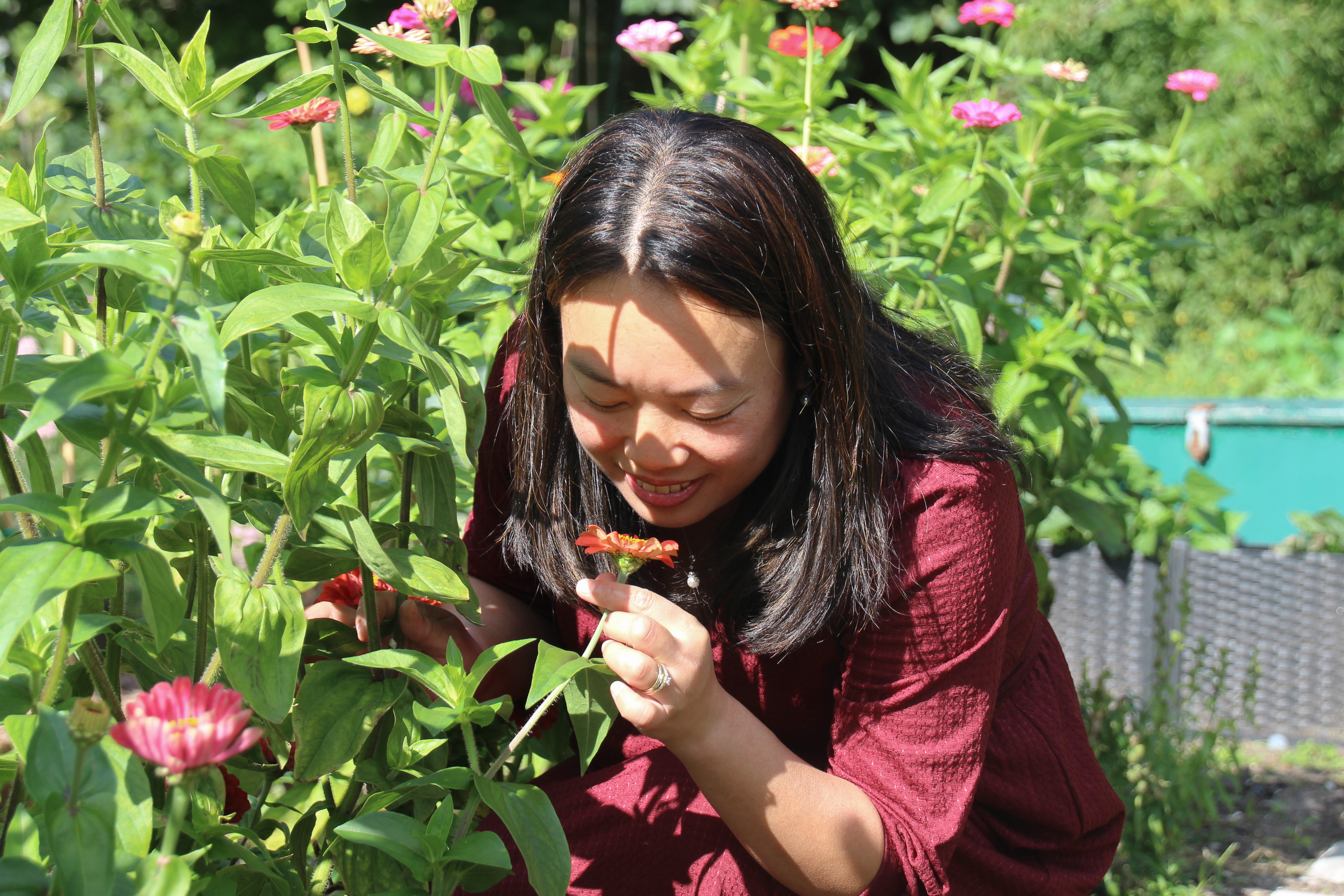
Jiyan Ilbrink: ‘Gardening allows me to put my research into practice’
When assistant professor Jiyan Ilbrink isn't working at the university, she can be found in her vegetable garden. On the plot of land around the corner from her home, she grows the most delicious tomatoes, zucchini, and potatoes.
What can we know about you within the faculty?
‘As a member of the Institute for Area Studies, I specialize in the intellectual history of the Chinese Middle Ages, focusing on political philosophy, mental care and, more recently, conceptual exclusion. A two-part book series is in the making. I also lecture at three campuses: the LIAS, Leiden University College and International Studies. I am also on the advisory board and the admissions committee for MA Asian Studies.’
You studied economy, but now you specialize in Chinese history. How did that happen?
‘When you grow up in rural China as a female, like I did, you don’t always have the privilege of developing or pursuing your own interests. That is partly why I first did a PhD in Chinese economy. Gradually, I discovered that I could only understand contemporary China if I increased my understanding of the past. The Middle Ages particularly caught my attention, especially the Song dynasty. The research questions I was interested in were best investigated outside China. So I started over, which meant I spent some twenty years on my education. It is not the nicest thing to do to yourself, but what I learned came in handy for what I do.'
How did you end up in Leiden?
‘I was able to write my second dissertation here. I had lived in big cities in America and Asia, and initially I intended to return to America after a few years, but I immediately felt at home in Leiden. That was mainly because of the flowers. I have always loved flowers, and here I could cycle to the bulb fields. Sometimes I took my books with me to work there. When I finished my dissertation, I realized that I had built such a nice life for myself that I wanted to stay.'
Why did you start a vegetable garden?
I used to buy flowers at the station, but I turned out to be a mass murderer: everything died very quickly. Fortunately, I then discovered a series of unkillable plants. These are about eight different houseplants that are impossible to kill, no matter how inexperienced you are. That gave me confidence in gardening, so two years ago I started sowing radishes, tomatoes, and potatoes on my balcony. When I moved and got a bigger balcony, I soon had twenty to thirty tomato plants that I had grown from seeds from my favorite supermarket tomatoes. I had also noticed that there was a vegetable garden next to the apartment complex. After three months on the waiting list, a 20-square-meter garden became available in June. Although it was already late in the season, we still managed to grow so many tomatoes, potatoes, beans, zucchini, and lettuce that we no longer had to buy them.'
What makes vegetable gardening so enjoyable?
'My research is really always about being true to yourself and living in harmony with nature. Gardening allows me to put that into practice. I'm a lazy gardener who keeps a close eye on the weather forecast: if it's going to rain, I don't water the plants.'
What's the best tip you've ever received?
'My partner once gave me a ‘lifetime supply of gardening’ for my birthday. Until then, I was only working, but that wasn't really productive at all. Because my partner has a lot of hobbies, he thought I should try one too. That worked out really well! Even if you've had a tough day, it's wonderful to do something you really enjoy, without any pressure.'
What is your favorite place in The Hague?
'It's not really in The Hague, but I really love Lisse. No matter how difficult the situation was, the scent and bright colors of the flower fields around Keukenhof never failed to cheer me up.'

